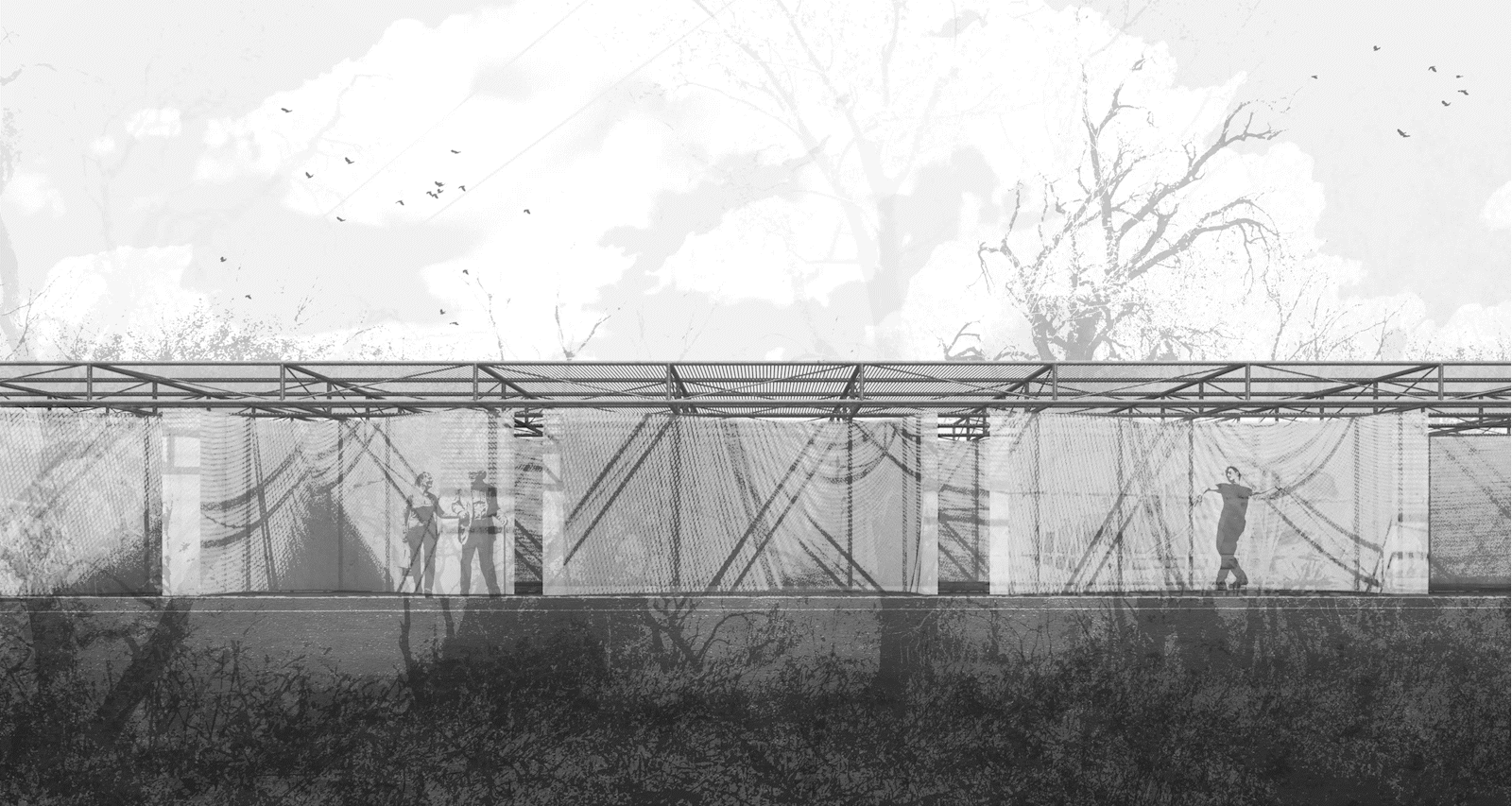
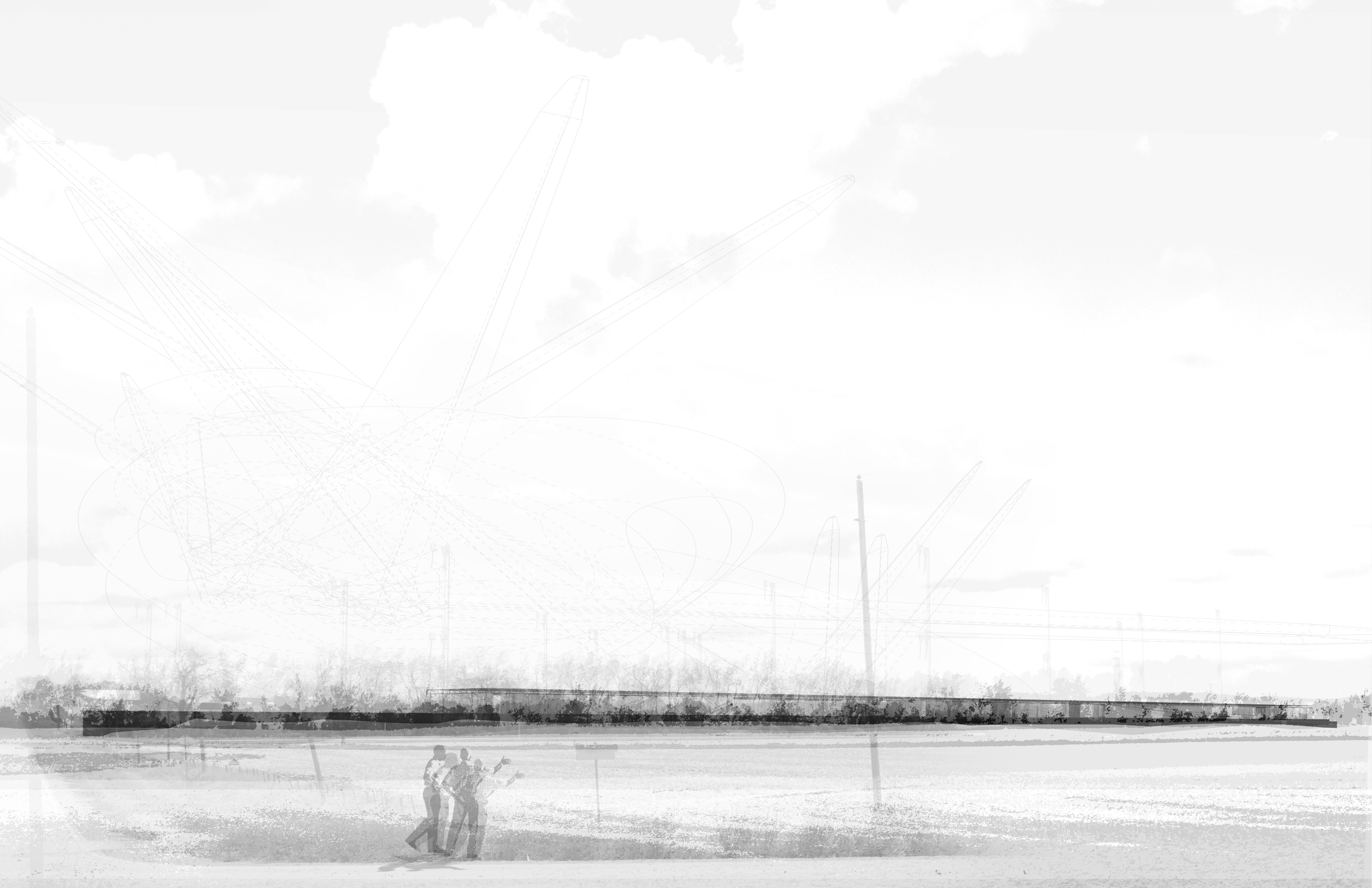
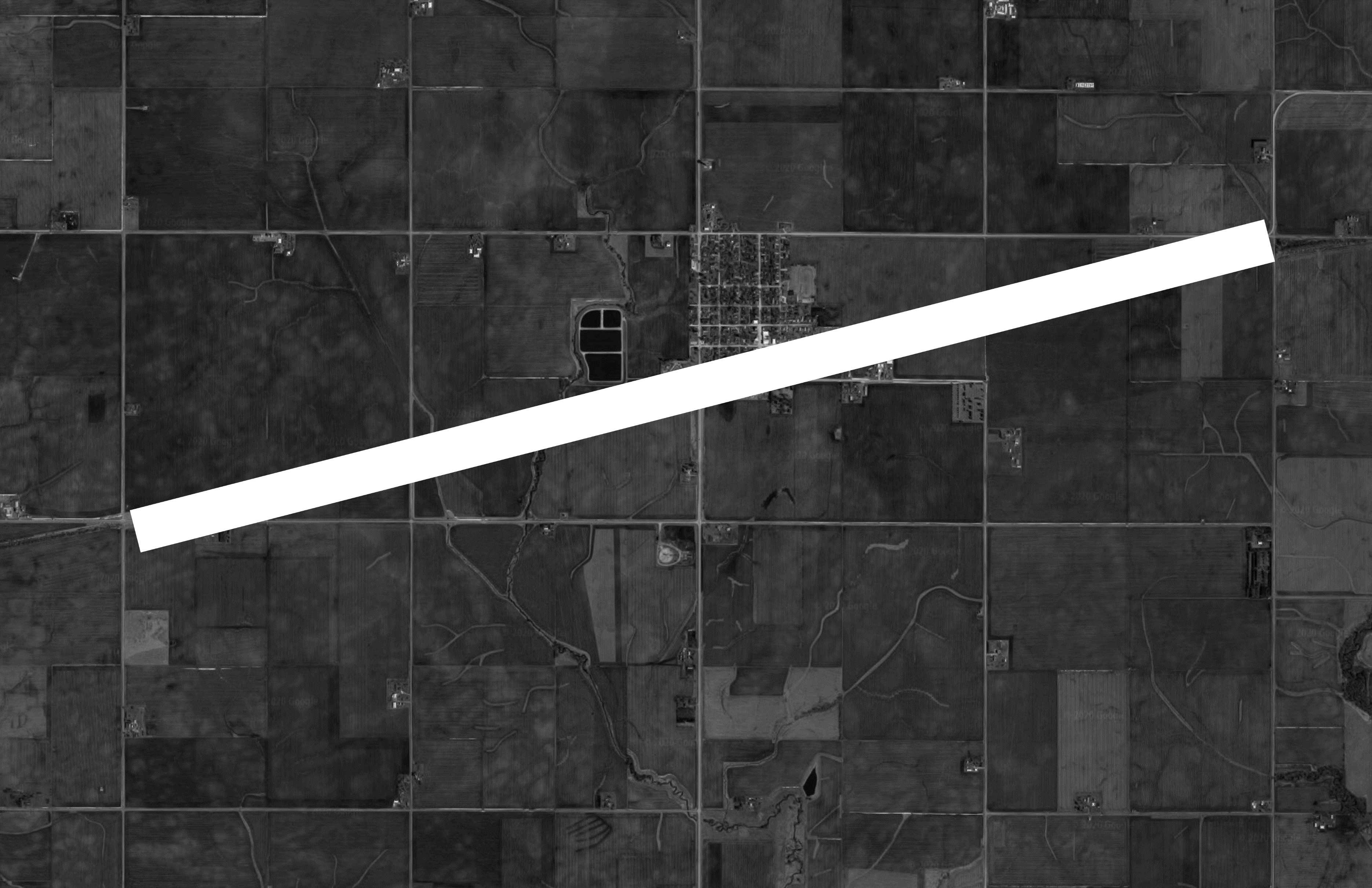

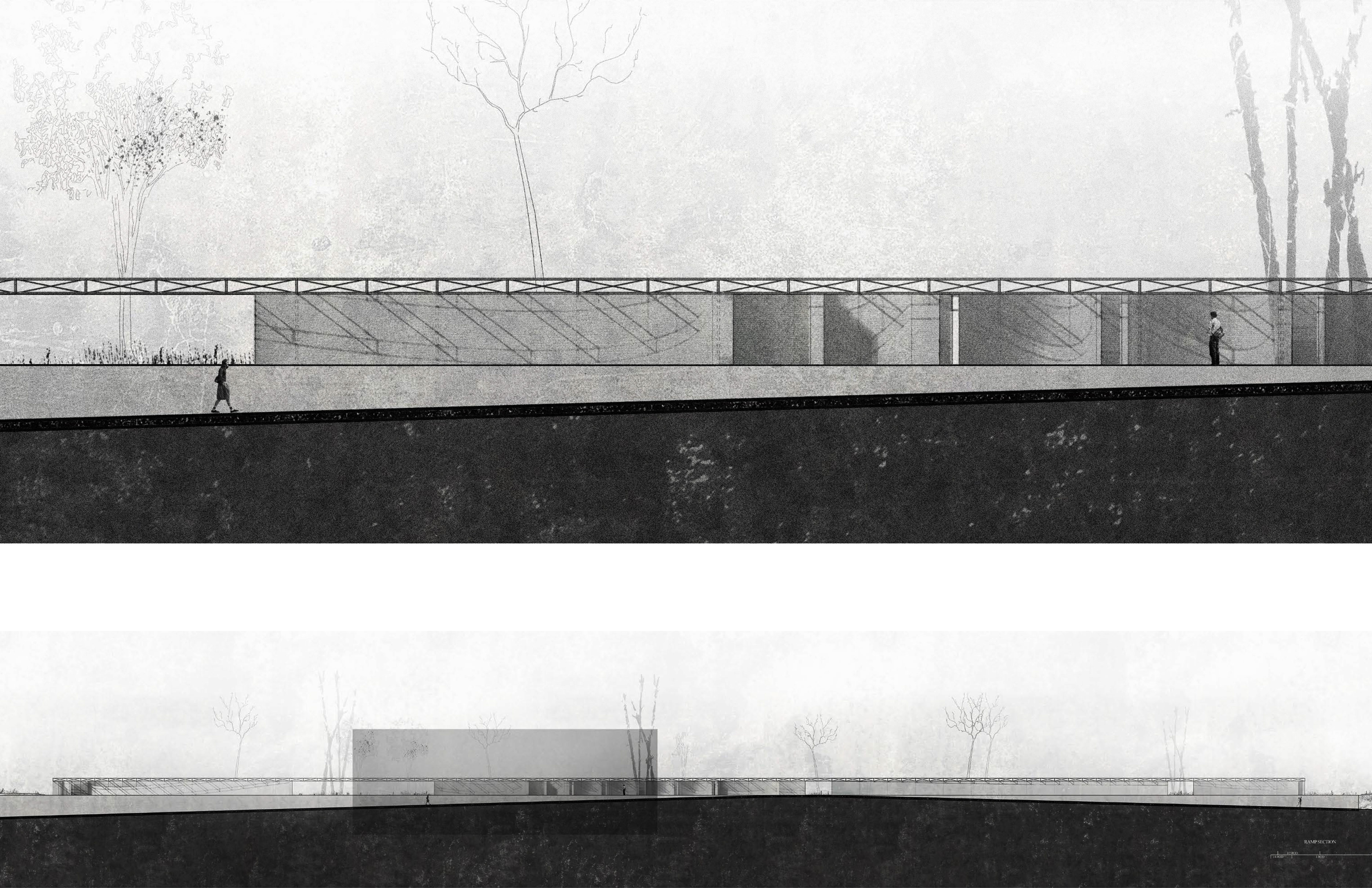


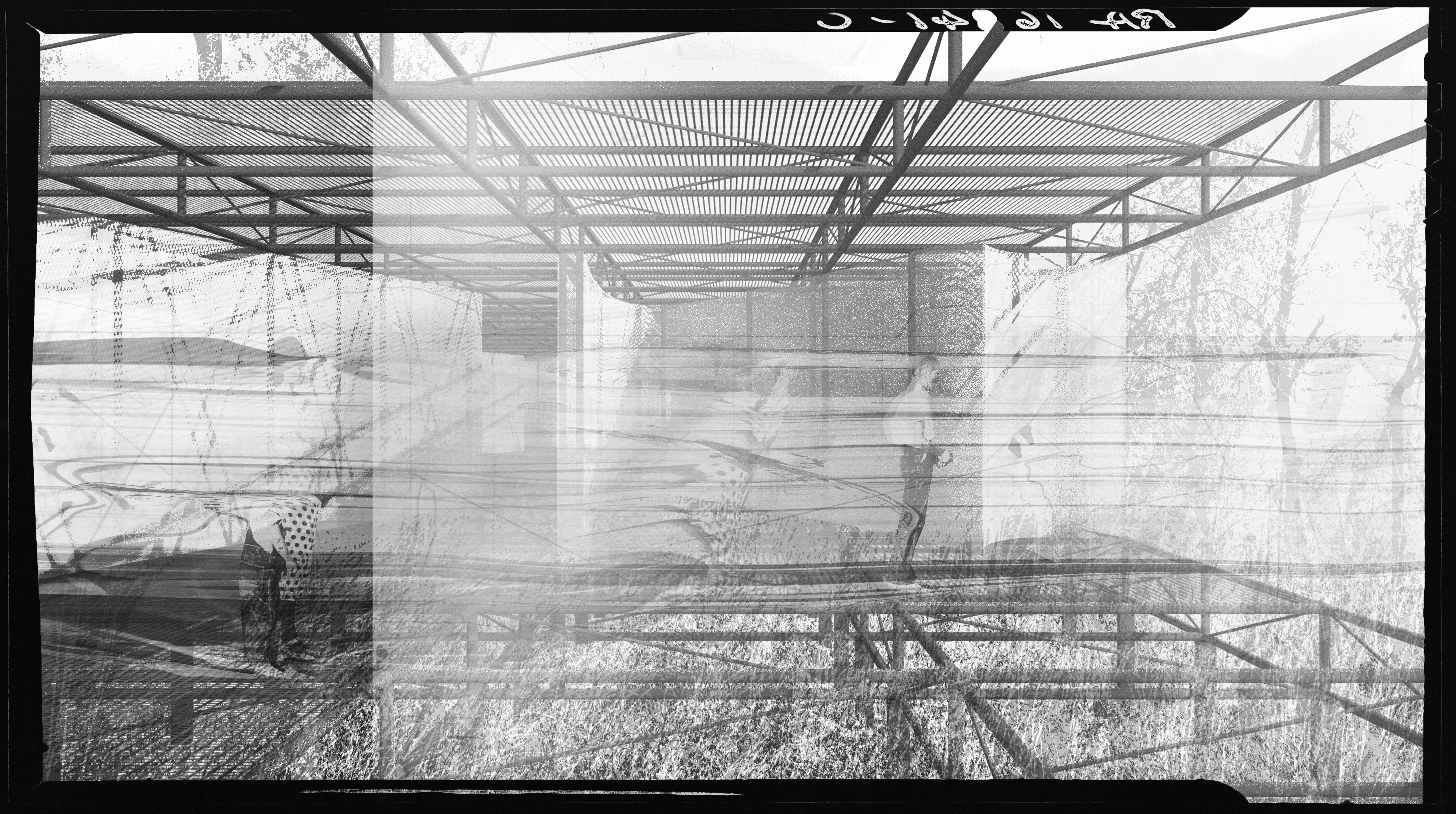
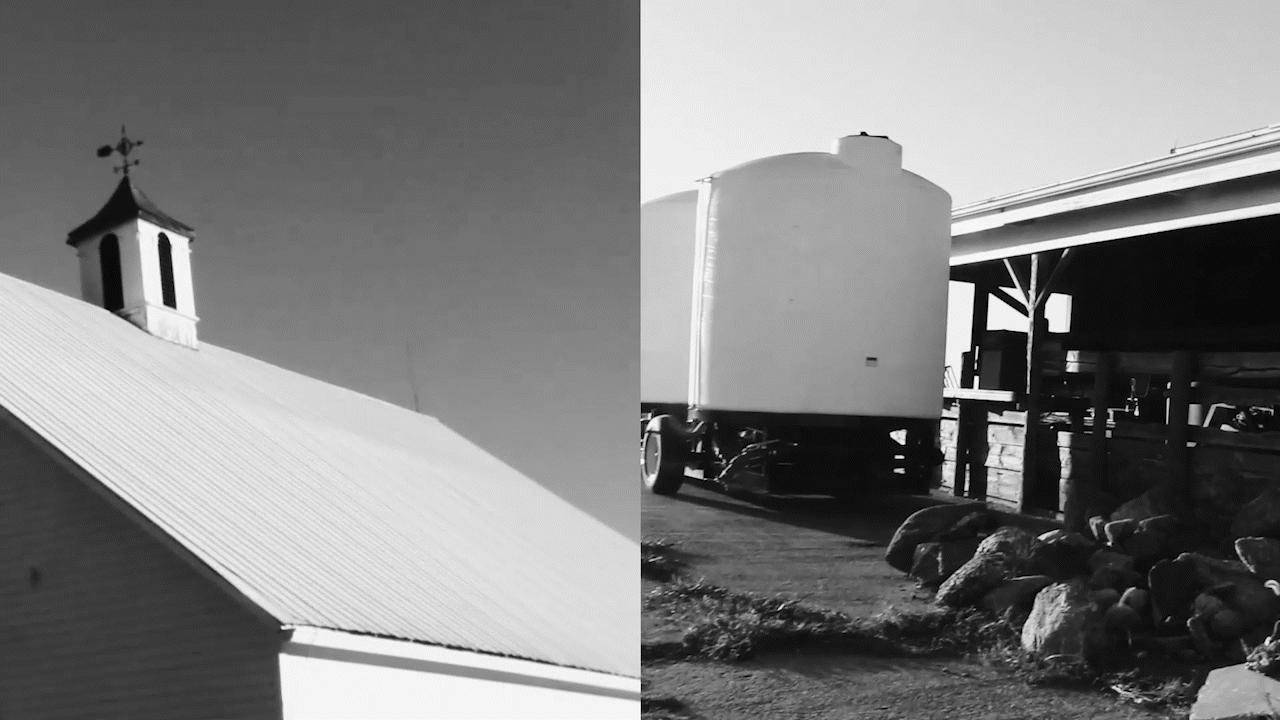
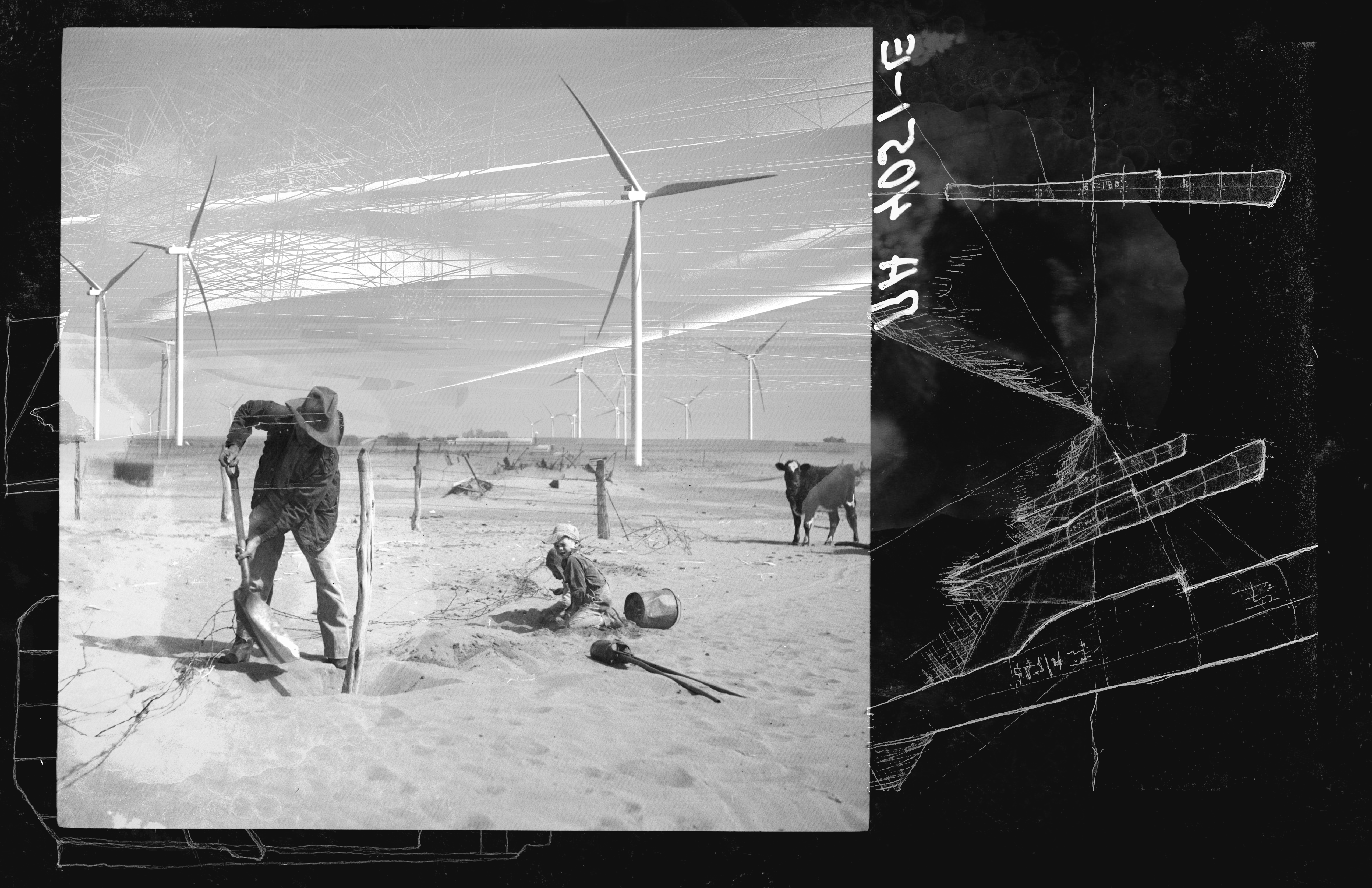
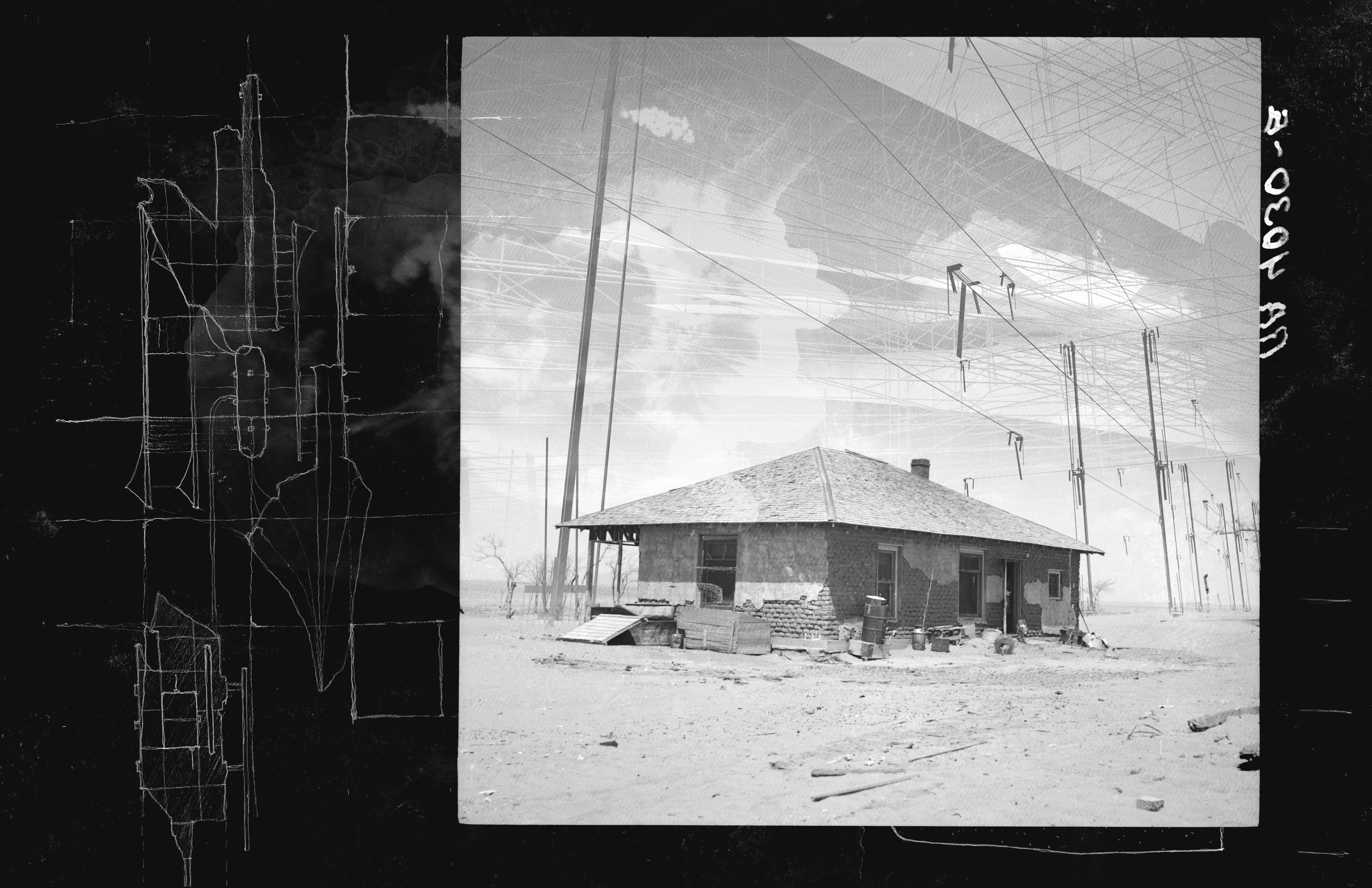
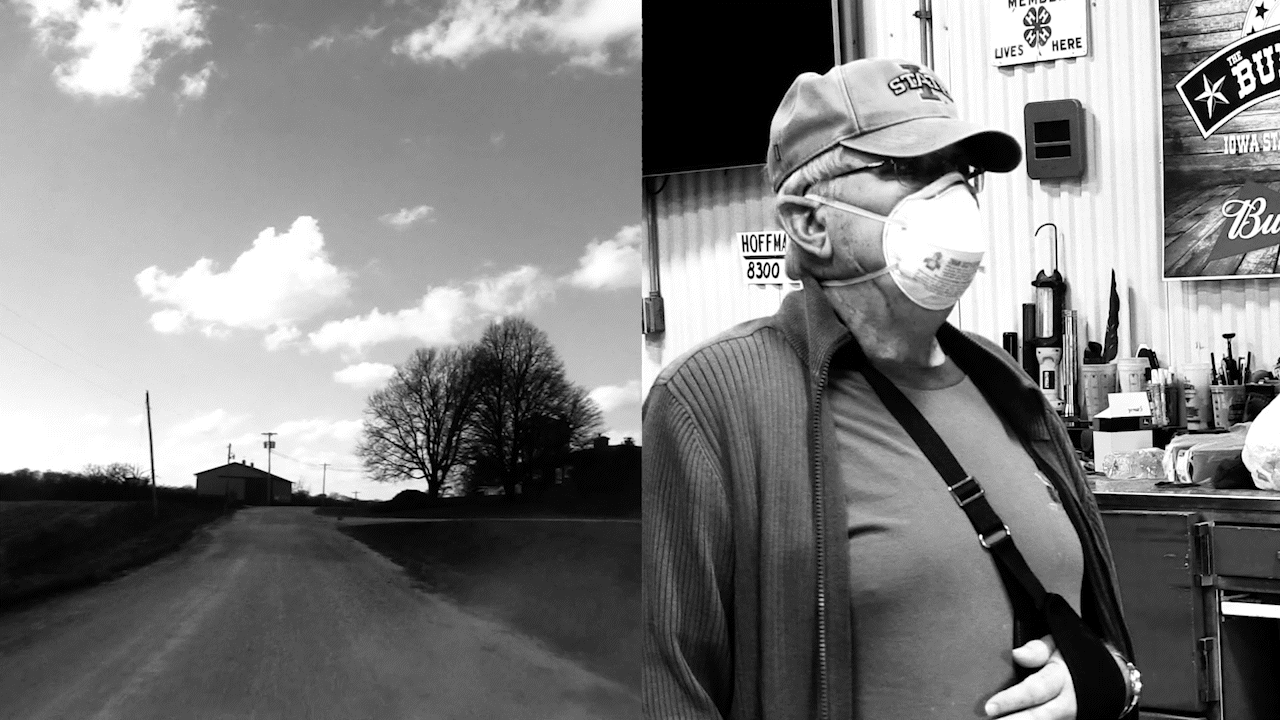


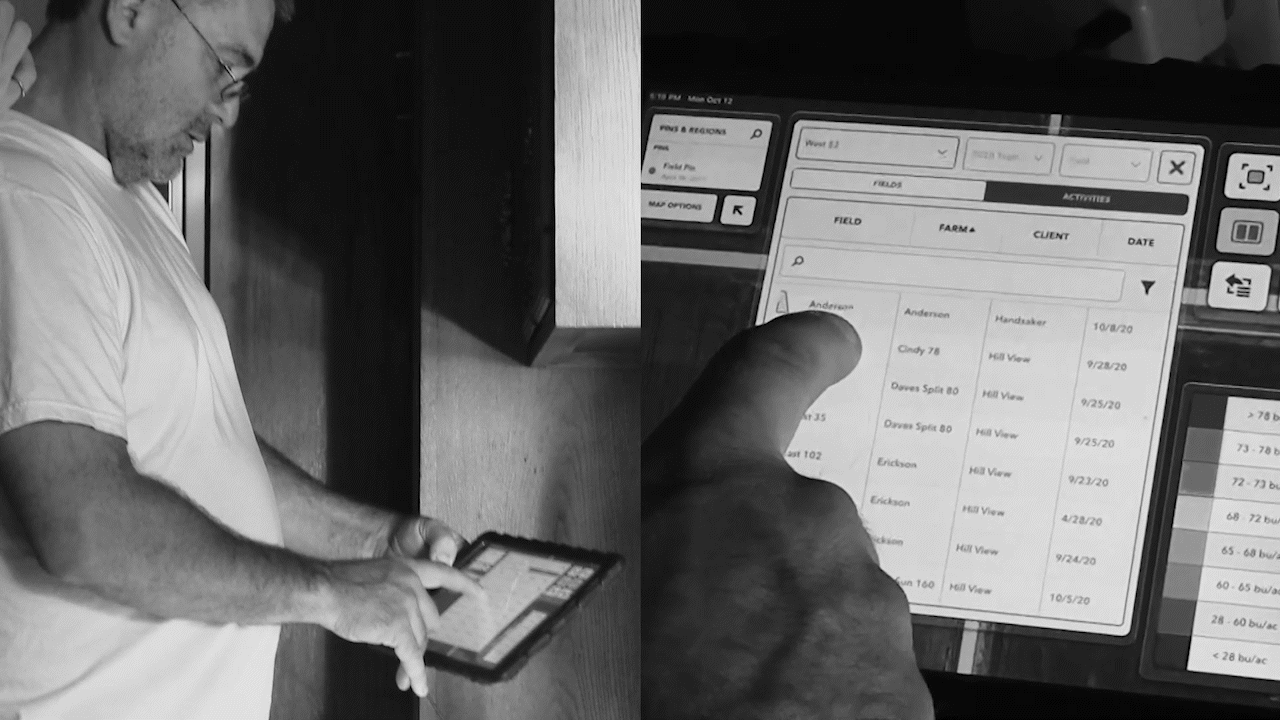
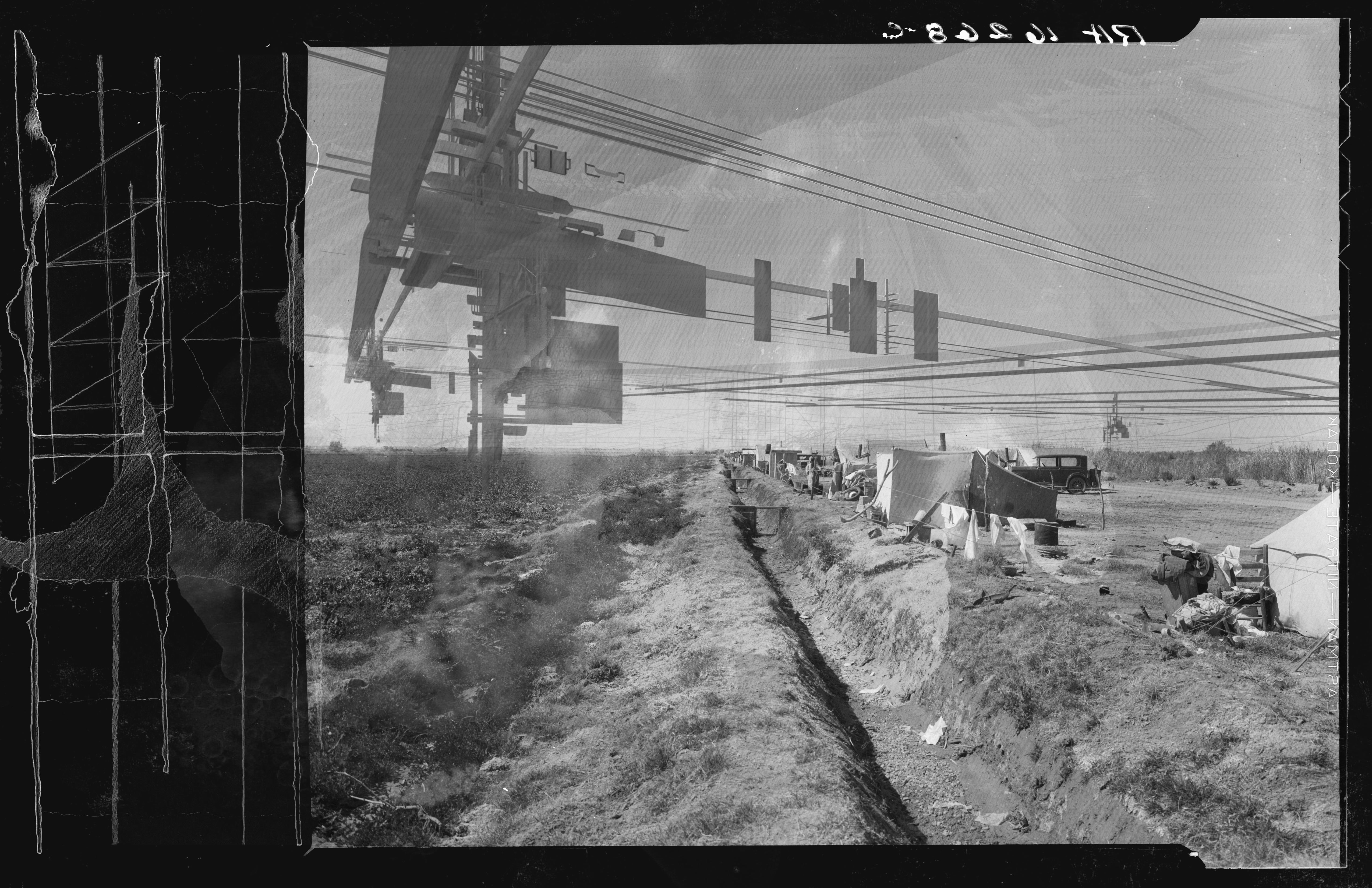
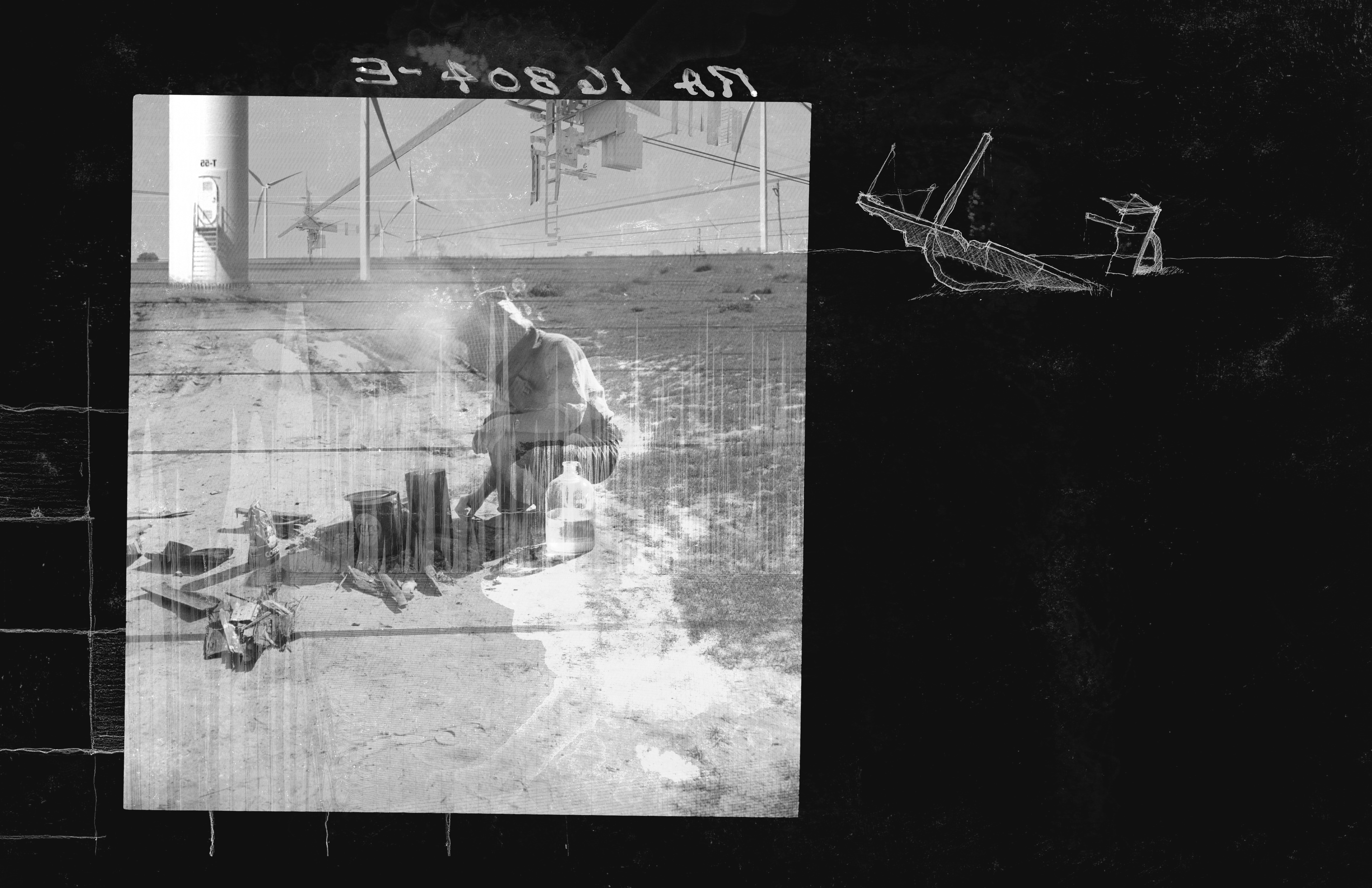
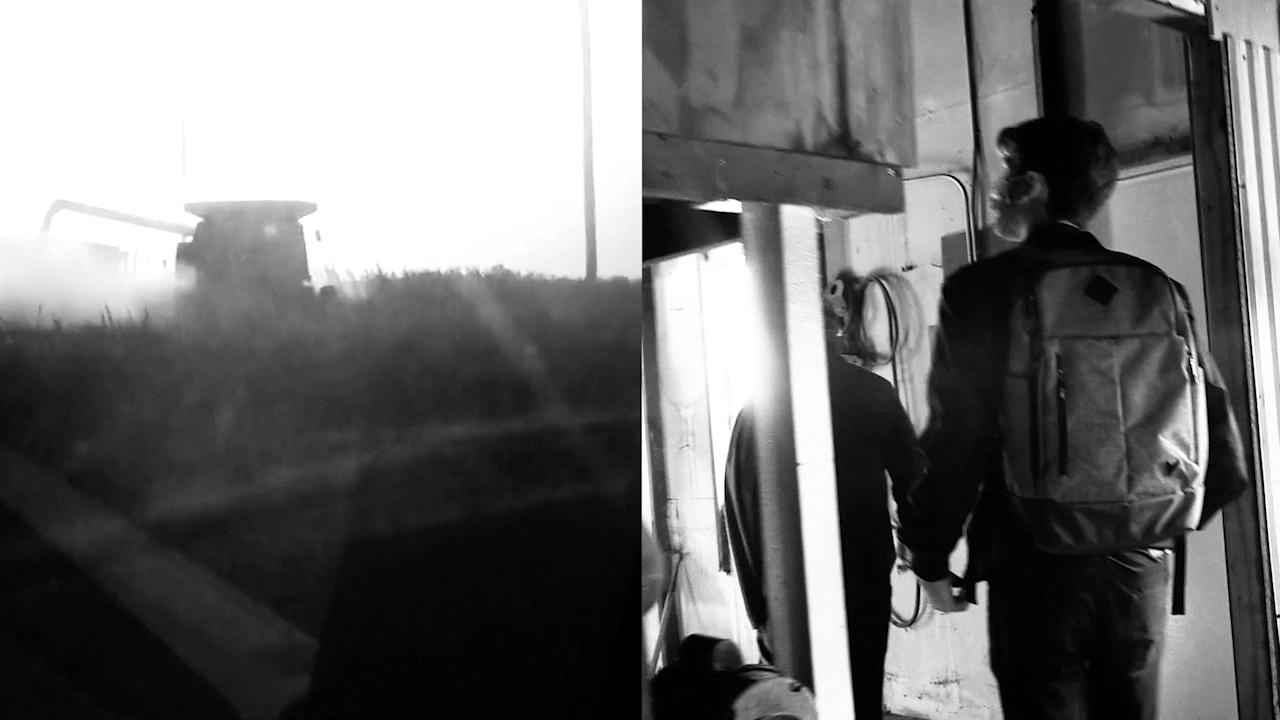
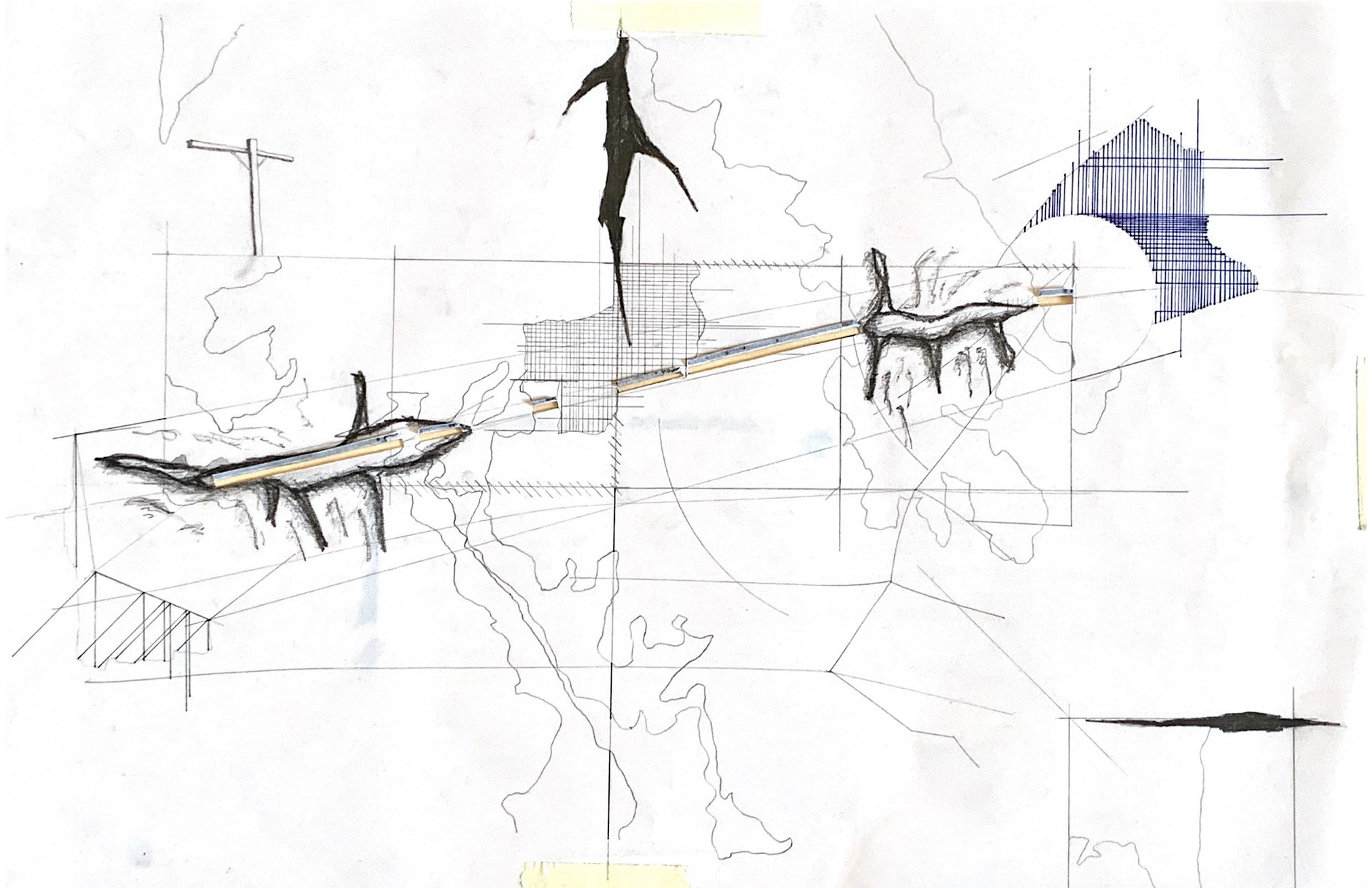

Fall 2020
Semester #3
2021 Richard F. Hansen Competition Finalist
Aaron Koopal
Oliver Goché
Semester #3
2021 Richard F. Hansen Competition Finalist
Aaron Koopal
Oliver Goché
E-63 is a future proposal that seeks to document, record, archive, and preserve the Midwestern landscape for future posterity.
There is no doubt that this region is rapidly changing in violent and existential ways as a result of mono-agricultural production, desertification, and an increasing strain on underground aquifers. From this, we have begun to imagine what the future of Midwestern landscapes look like; one where a hypothetical dust bowl has wiped out much of the existing ecological and cultural phenomena in the Midwest.
With this in mind, we began to interview various demographics that occupy the Midwestern landscape with what they call home. We sought nothing more than to understand their lives and their stories through their own perspectives. From these interviews, we gain a frame of reference for the relationship that our architecture has to the ecological and cultural landscape of the Midwestern region.
There is no doubt that this region is rapidly changing in violent and existential ways as a result of mono-agricultural production, desertification, and an increasing strain on underground aquifers. From this, we have begun to imagine what the future of Midwestern landscapes look like; one where a hypothetical dust bowl has wiped out much of the existing ecological and cultural phenomena in the Midwest.
With this in mind, we began to interview various demographics that occupy the Midwestern landscape with what they call home. We sought nothing more than to understand their lives and their stories through their own perspectives. From these interviews, we gain a frame of reference for the relationship that our architecture has to the ecological and cultural landscape of the Midwestern region.
Through this research, we realized that this landscape, and its ecology, is directly intertwined with the culture that encompasses it. In the Midwestern region, a threat to ecology is a threat to culture.
This project aims to capture these elements in the landscape before they are lost through methods of speculative documentation. These methods include the archiving of objects and the stories that are connected to them, projections of phenomena from throughout the landscape, as well as data from an already semi-in-place infrastructure that can record the landscape to the micro-scale of a singular seed.
By hypothesizing the future of data collection and its parallels to agricultural production, we sought to see how these stories, phenomena, and data may continue to be recorded for our posterity in the event that the Midwestern landscape we recognize today isn’t around anymore due to the existential threats it faces.
This project aims to capture these elements in the landscape before they are lost through methods of speculative documentation. These methods include the archiving of objects and the stories that are connected to them, projections of phenomena from throughout the landscape, as well as data from an already semi-in-place infrastructure that can record the landscape to the micro-scale of a singular seed.
By hypothesizing the future of data collection and its parallels to agricultural production, we sought to see how these stories, phenomena, and data may continue to be recorded for our posterity in the event that the Midwestern landscape we recognize today isn’t around anymore due to the existential threats it faces.